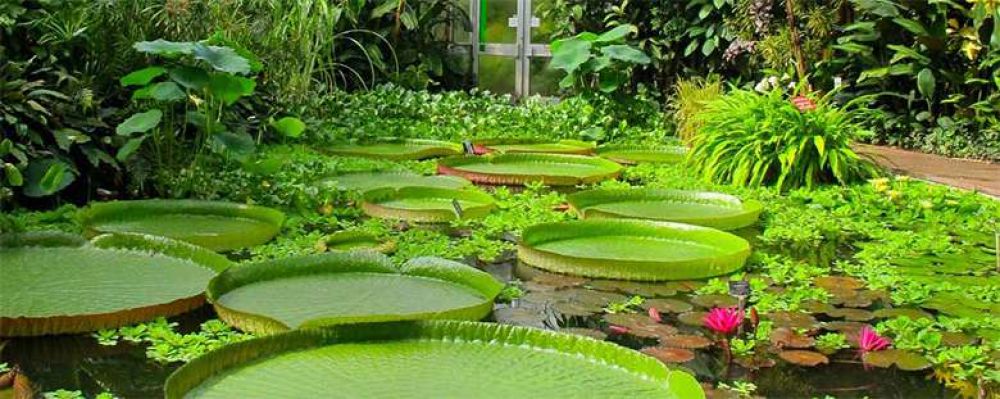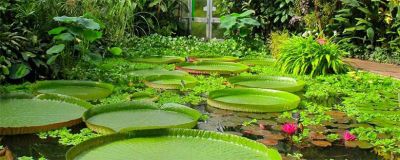

The Royal Botanic Garden in Thimphu, capital of Bhutan, offers guided nature walks that immerse visitors in the serene, lush environment of this Himalayan gem. Guests are accompanied by knowledgeable guides who provide insightful information about the native plant species, the garden’s ecosystems, and conservation efforts unique to Bhutan. This educational and leisurely stroll takes you through a variety of eco-zones, including alpine, temperate, and subtropical areas that showcase the country's rich biodiversity. Discover rare orchids, medicinal herbs, and colorful rhododendrons. The walk may also include visits to the garden's conservation and research centers, contributing to a deeper understanding of how Bhutan protects its natural heritage.
Bhutan's Royal Botanical Garden is a haven for birdwatchers, offering a chance to spot both indigenous and migratory bird species. The tour is typically guided by a local ornithologist or a naturalist well-acquainted with the avian life of the region. Attendees can expect to encounter a range of birds, from the vividly-colored Himalayan Monal to more elusive species like the Spotted Laughingthrush. Providing not just sightings but also an auditory experience, guests are often delighted by the symphonies of bird calls that resonate throughout the gardens. Bird watching tours are quieter, meditative activities that allow for patience and presence amidst the natural splendor of Bhutan.
Photography enthusiasts will find the Royal Botanical Garden of Thimphu an exceptional location to capture the stunning flora and cultural beauty of Bhutan. The garden offers a multitude of subjects, from detailed macro shots of exotic plants to wider landscape photos that capture the essence of the Bhutanese environment. This activity typically does not include guidance, providing freedom for individual exploration and creativity. However, photography workshops are occasionally available, catering to both amateur and experienced photographers wishing to improve their skills and learn new techniques in a picturesque setting.
To cultivate appreciation for nature among the younger generation, the Royal Botanical Garden offers various educational programs tailored for children. These programs are filled with engaging, hands-on activities that teach kids about plant life, conservation, and the importance of biodiversity. Such initiatives might include seed planting workshops, fun nature-themed games, and interactive storytelling sessions that contain valuable lessons about the environment. By participating, children not only gain knowledge but also develop a sense of responsibility towards preserving the natural world—a core value in Bhutanese culture.
The serene landscape of the Royal Botanical Garden creates an ideal atmosphere for meditation and yoga, offering a peaceful escape from daily stresses. Visitors can either join scheduled group sessions or opt for a solo practice in a quiet corner of the garden. Guided sessions are typically led by experienced instructors who adapt their teaching to the participants' skill levels. The combination of natural tranquility and mindful exercise promotes a profound sense of well-being and connection to the environment. This holistic experience is deeply aligned with Bhutanese spiritual values and the country's focus on Gross National Happiness.
Bhutan's Royal Botanical Garden is not only a showcase of the country's plant life but also a celebration of its rich cultural heritage. Guided cultural tours often incorporate visits to historical and religious sites within or near the garden. These may include sacred monuments, traditional Bhutanese houses, and art displays that reflect the spiritual and artistic traditions of the nation. As part of these tours, visitors may also have the opportunity to witness cultural performances or participate in traditional Bhutanese crafts, gaining a deeper understanding of the local customs and way of life.
Picnicking in the Royal Botanical Garden is a popular activity among both locals and tourists. The garden provides a picturesque setting with breathtaking views of the surrounding mountains, making it an idyllic spot for a leisurely meal. Visitors are encouraged to bring their own picnic baskets filled with snacks and enjoy the lush surroundings. The activity allows for relaxation and socializing in the open air, complemented by the garden's natural beauty. There are designated picnic areas where visitors can lay down their spreads and bask in the peaceful ambiance while adhering to the garden's eco-friendly policies.
For those visiting the Royal Botanical Garden at specific times of the year, the garden hosts seasonal flower shows that celebrate the blooming of various plant species. These events are especially vibrant with the springtime rhododendron festival, which features dozens of rhododendron species in a riot of colors. The shows are not only aesthetically pleasing but also aim to educate visitors on the diverse flora of Bhutan and the conservation work being done to preserve it. Flower enthusiasts can enjoy the displays, partake in workshops, and engage with local experts to learn more about the significance of each species to Bhutan's ecosystem.
In line with Bhutan's strong emphasis on conservation, the Royal Botanical Garden offers workshops focused on environmental education and sustainability practices. Aimed at visitors of all ages, these workshops provide insights into the challenges of conservation in the modern era and the strategies employed within Bhutan to combat them. Interactive sessions might cover topics such as renewable energy, waste management, and sustainable agriculture. Participants are encouraged to take part in discussions and activities that foster environmental stewardship, reflecting the garden's role as a leader in ecological preservation.
Bhutan, with its diverse ecosystems, is home to a treasure trove of medicinal and herbal plants. The Royal Botanical Garden's guided walks focus on these valuable resources, offering guests a chance to learn about the traditional uses of herbs in Bhutanese medicine and culture. Accompanied by an expert in ethnobotany or traditional medicine, visitors can identify different herbs and understand their roles in health and healing. This enlightening walk provides context to the ancient knowledge that has been passed down through generations and emphasizes the importance of preserving these plants for future use.
